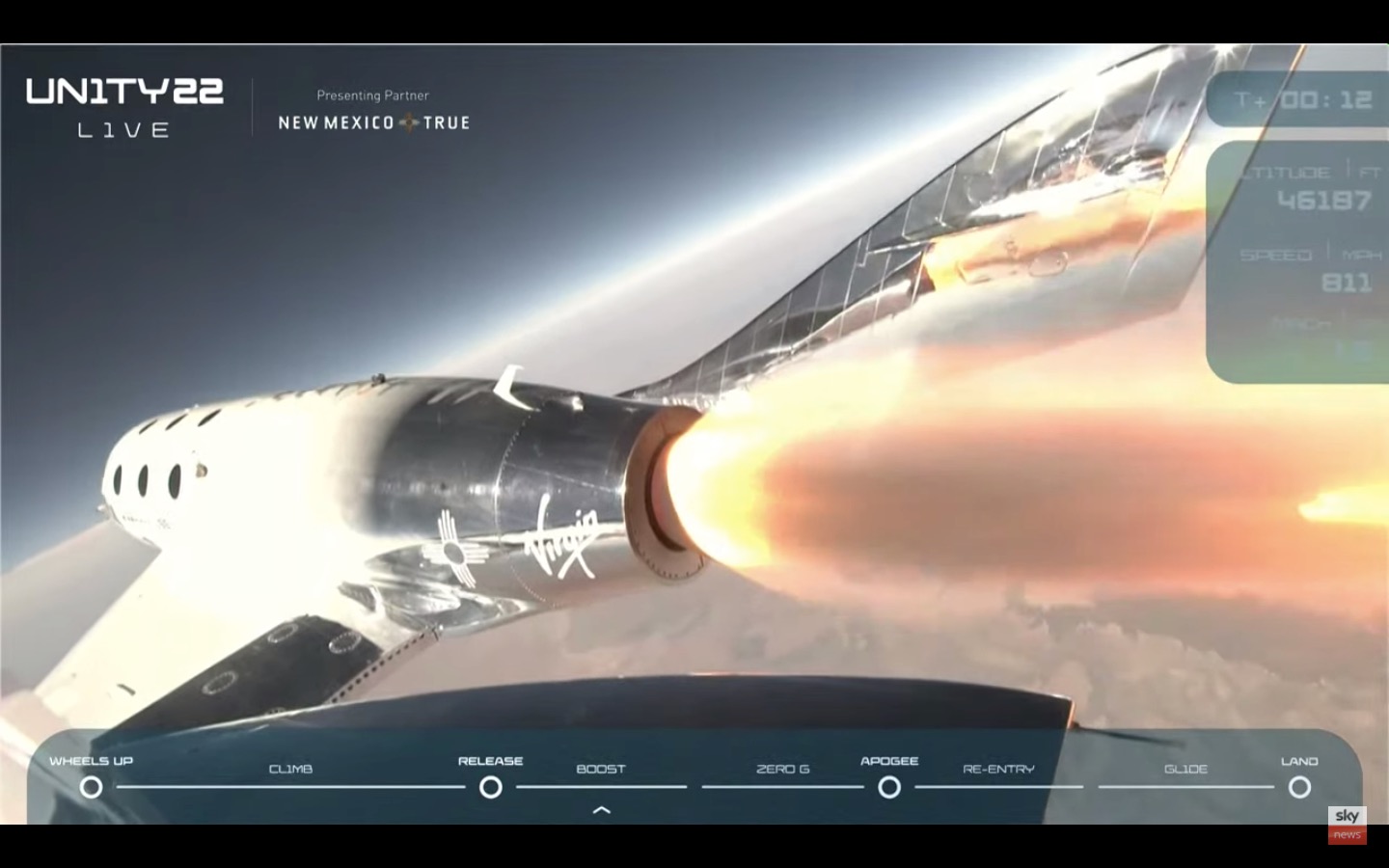
Virgin Galactic won't fly another crewed space mission this year after all.
The company had been planning to fly members of the Italian Air Force on its VSS Unity suborbital spaceliner this fall, then take a hiatus to perform maintenance and enhancement work on Unity's carrier plane, VMS Eve. But that schedule has now changed.
Virgin Galactic has been performing lab tests on various materials recently to help prepare for the coming enhancement project. One such test "flagged a possible reduction in the strength margins of certain materials used to modify specific joints, and this requires further physical inspection," company representatives wrote in an update Thursday (Oct. 14).
"While this new lab test data has had no impact on the vehicles, our test flight protocols have clearly defined strength margins, and further analysis will assess whether any additional work is required to keep them at or above established levels," they added. "Given the time required for this effort, the company has determined the most efficient and expedient path to commercial service is to complete this work now in parallel with the planned enhancement program."
In photos: Virgin Galactic's 1st fully crewed spaceflight with Richard Branson
That means the Italian Air Force flight, known as Unity 23, will be pushed to next year. Thursday's update didn't give a target date for that mission, but Virgin Galactic representatives have previously said that the enhancement work is likely to keep VMS Eve out of action until mid-2022.
Unity 23 is a test flight. Several more demonstration missions will follow before Virgin Galactic is ready to start commercial operations, a milestone that is now targeted for the fourth quarter of 2022, company representatives said in Thursday's update.
Get the Space.com Newsletter
Breaking space news, the latest updates on rocket launches, skywatching events and more!
The six-passenger, two-pilot VSS Unity lifts off beneath the wings of VMS Eve, which drops the spaceliner at an altitude of about 50,000 feet (15,000 meters). Unity then fires up its onboard rocket motor and makes its own way to suborbital space.
Passengers on Virgin Galactic flights get to experience a few minutes of weightlessness and see the curvature of Earth against the blackness of space. The company recently reopened ticket sales, at $450,000 per seat.
Unity has conducted four test missions to the final frontier to date. The most recent, which occurred on July 11, carried billionaire Virgin Group founder Richard Branson and three other passengers to space and back.
During its descent on that flight, which was called Unity 22, the space plane veered out of its designated airspace, prompting an investigation by the U.S. Federal Aviation Administration (FAA). That inquiry is over, and the FAA has cleared Virgin Galactic to fly again.
Virgin Galactic had previously aimed to launch Unity 23 in late September or early October, but that timeline slipped so the company could investigate a potential manufacturing defect in a component provided by a third-party supplier. That issue has been resolved, and it did not play a part in the decision to begin the maintenance and enhancement work now, company representatives said in Thursday's update. (The enhancement work will be done in Mojave, California, at the facilities of The Spaceship Company, Virgin Galactic's manufacturing subsidiary. Virgin Galactic's commercial operations will be based at Spaceport America in New Mexico, the site of its two most recent test flights to space.)
That update came one day after Virgin Galactic's chief rival in the suborbital space tourism industry, Jeff Bezos' Blue Origin, launched its second-ever crewed spaceflight. That mission sent "Star Trek" actor William Shatner and three other people to the final frontier on Blue Origin's New Shepard vehicle.
Mike Wall is the author of "Out There" (Grand Central Publishing, 2018; illustrated by Karl Tate), a book about the search for alien life. Follow him on Twitter @michaeldwall. Follow us on Twitter @Spacedotcom or Facebook.
Join our Space Forums to keep talking space on the latest missions, night sky and more! And if you have a news tip, correction or comment, let us know at: community@space.com.

Michael Wall is a Senior Space Writer with Space.com and joined the team in 2010. He primarily covers exoplanets, spaceflight and military space, but has been known to dabble in the space art beat. His book about the search for alien life, "Out There," was published on Nov. 13, 2018. Before becoming a science writer, Michael worked as a herpetologist and wildlife biologist. He has a Ph.D. in evolutionary biology from the University of Sydney, Australia, a bachelor's degree from the University of Arizona, and a graduate certificate in science writing from the University of California, Santa Cruz. To find out what his latest project is, you can follow Michael on Twitter.









